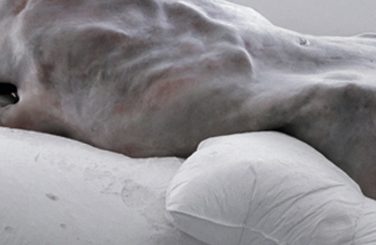One year after the start of the global Covid-19 pandemic, we are slowly beginning to understand its mental health side-effects. E&M author Julia Zalewska talks about the personal crises she has gone through during this time as well as how to deal with them, and gives insights to the first scientific explanations.
It’s been over a year since the COVID-19 pandemic began. So much has happened, yet it feels like we’ve been frozen – the world we were familiar with is gone now and we need to adapt to the new reality.
The situation we got into is something none of us expected to happen. We’ve learned a lot, I hope. It taught me how little I can be sure of and what really is important. I also got closer to myself, which was not so easy. I wouldn’t claim it’s everybody’s experience during the pandemic times, but I guess being less distracted made me face my truest self. The ups and downs of the past year helped me build a bond that makes me more conscious of who I really am.
If anyone were told what happened in 2020 a year or two before, they would say it’s bonkers. We lived our comfortable lives, consuming faster and faster and then it abruptly stopped – things we took for granted vanished. We’ve been deprived of so many things that fulfilled our everyday lives for over a year now. We cannot travel, go to restaurants, cinemas, theaters, concerts etc., meeting family members of older age makes us anxious – we can infect them unintentionally and it can be fatal. We change from sweatpants into pajamas, our homes become offices and we hardly go out anywhere, but to the groceries. I’m actually surprised we’re not all nuts out there. Or maybe we are?
The experiment of the first lock-down and its guinea pig
At first, I felt like there’s too much spare space for me to think and feel. I was using Instagram Stories excessively to keep myself sane – it gave me an illusion of having contact with other people, while I was spending time locked up in an apartment with my cat.
I realized it was somewhat hard for me to watch movies. I’ve been thinking about it and the case is that it gave me an inadequate thrill. I empathized with characters way too much, to the point it made me sick. The feeling of no control over what happens next only made it worse. I ended up with Notting Hill, Breakfast at Tiffany’s and La Dolce Vita, which I know by heart. The first lockdown felt like some kind of experiment and I was a guinea pig. I even noticed how my perception changes after spending a few days in my apartment. How odd the space seems – buildings’ facades and roofs, people I passed by. My dreams got vivid and abstract like paintings. My thoughts were galloping and I couldn’t write. When I did, it wasn’t any good or pleasurable as it’s always been. I felt lost and couldn’t get myself together.
Post-traumatic stress symptoms of Covid-19
And I guess some of you reading my experiences can say “oh, I had the same thing!”, “I felt this way” or “I had another problem”. It’s been already measured by scientists: the side effects of COVID-19 pandemic. They also propose how to cope with them: Most of the reviewed studies reported negative psychological effects including post-traumatic stress symptoms, confusion, and anger. Stressors included longer quarantine duration, infection fears, frustration, boredom, inadequate supplies and information, financial loss, and stigma. When taken into consideration, some of the researchers have suggested long-lasting effects. In situations where quarantine is found to be a necessity, the officials should quarantine individuals for no longer than required and it is important to provide clear rationale for quarantine and provide sufficient supplies. Moreover, awakening altruism by reminding the public about the benefits of quarantine to wider society can bring positive outcomes.
What particularly got my attention were the odd, vivid dreams. The phenomenon was widespread enough to get nicknames such as “quarandreams” or “corona dreams.” In Barrett and Aspy’s article, they point out three major reasons for why our dreaming has changed. Firstly, experiencing highly stressful or traumatic events plays in the nature of our nighttime dreams, causing an increase in vividness and anxiety in dreams. Also, we often dream about the kinds of things that we think about and do during the day. The high exposure to a sense of anxiety, as well as the information overload about the pandemic through different kinds of media are bound to influence what people dream at night.
The most surprising factor is hours of sleep. The two scientists Barrett and Aspy, specialized on dreams, explained that thank’s to quarantine people can actually catch up on sleep during lockdown, as there’s no social life events etc. and “A rebound of lost sleep means an even bigger rebound of lost dream time. (…) Likewise, when you do catch-up sleeping, you are especially catching up on dreaming and have some of the longest REM periods ever — and most vivid dreams,” Barrett said.
The articles helped me, as it all seemed more reasonable now. However, it’s just not enough to feel fine again. I needed some time to revise my life and how it changed.
Talking about the self-blame
After some time, I finally found my coping mechanism: books! I can travel with them, let my mind relax, to some point control what happens next with my imagination and thankfully I didn’t choose any mac’n cheese alike addictions.
And of course, no matter how many books I read, there were breakdowns. The worst part for me was how I blamed myself.
How could I be sad, or numb? I felt like I didn’t have the right to – I didn’t loose a job, or my home. I actually got back together with the man, who’s the love of my life, graduated and got a nice job. I should be grateful and stop whining.
At some point I thought I would get depressed again. I felt awful not only because of depressive thoughts and anxiety, but also because of the blame I kept putting on myself. ‘How can I be depressed experiencing such beautiful things?’ I thought.
I couldn’t watch any of the news. When I saw what happened in other countries I thought (and I still think) ‘I have no right to be where I am – to be privileged’. The pandemic only emphasized the glaring injustices of XXIst century’s world.
My head was overwhelmed with continuous thoughts about dying and the senselessness of life. The classic existential crisis + some anxiety and worries related to my boyfriend, family, friends + the blame. I had so many mournful scenarios in my head. It was pure madness I couldn’t get myself out of.
What helped were my closest ones and all the talking and tears they had with me. My boyfriend was the one who forced me to talk about it and letting it out really helped. I felt understood and not alone.
The worst thing in this pandemic is the loneliness. Self-distancing got many people excluded, alienated. Not to mention the racism towards Asian people.
We really need to support each other, there is no other way out. And I think sharing how we feel, what we think may really help. We all are facing the pandemic, let’s not forget about it. Support by your partner, family & friends can be the cure, but sometimes help by a specialist is needed and we should understand that it’s perfectly okay and normal.
Right now I feel a lot better and I hope anyone who reads this feels all right too.
I have my ups and downs and to some point it is okay. Life isn’t a constant. I’m grateful for being where I am, surrounded by the most wonderful people. I do my best not to blame myself for being where I am, or for sometimes feeling sad.
I think this experience gave me an opportunity to understand myself better, to know my emotions and how to cope with them and I wish the same for everyone of you.
Cover Photo by Giorgio Trovato (Unsplash)










